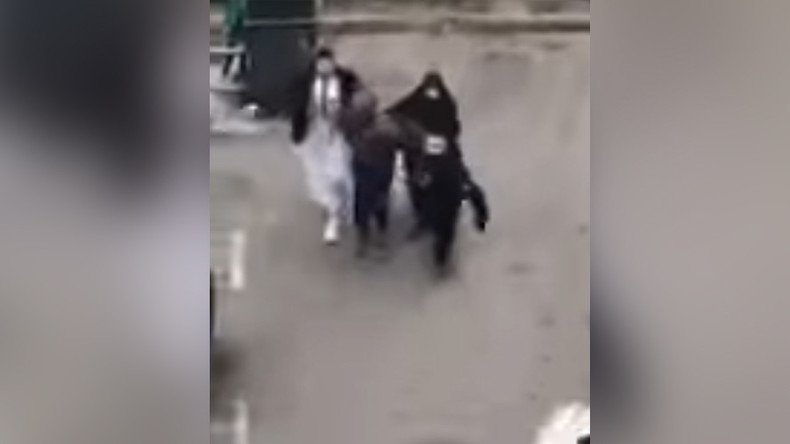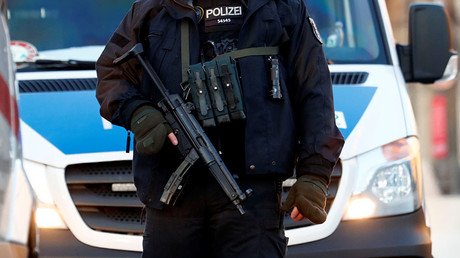French police under fire for dressing as Muslims during drug raid (VIDEO)

Police in Marseille have been criticized over the arrest of a suspected drug dealer made by two officers dressed in traditional Muslim attire.
The suspect was detained on Wednesday in La Bricarde neighborhood in the north of the city, along with two other alleged members of his crew in an operation in which 1.2 kilograms of cannabis and 300 euros in cash were seized. An otherwise unremarkable arrest, were it not for the fact that two of the officers were dressed in a qamis and jilbab, long tunics typically worn by conservative Muslims. The arrest was caught on camera and quickly spread through social media.
The arrest was part of an operation by a special brigade within the national police, a spokesperson of the Regional Directorate of Public Security [DDSP] confirmed, according to 20 Minutes.
Vidéo hallucinante montrant deux policiers déguisés en "musulmans" pour arrêter un jeune de Marseille, dans le quartier de La Bricarde. pic.twitter.com/XbxdotVMRR
— Salem (@Ibn_Sayyid) February 1, 2017
Many were angered that the police were dressed specifically as Muslims when other civilian clothing could just as well have been used.
“It’s normal that banlieusards [residents of inner-city neighborhoods] feel stigmatized when the police use these kind of procedures, which speaks volumes about the city conditions,” wrote a person who originally posted the video on Twitter.
“This is the first time that I've heard of the police using this strategy. I don't think it's right for the police to pretend to be Muslim just in order to arrest someone, even if the rules do go out of the window in this game of cat-and-mouse,” “Wassim,” a local resident, told France 24. “They could have simply been in mufti, without having to pretend to be Muslim.”
But others have not been so quick to criticize, saying it was necessary for the officers to blend into an area that’s deeply suspicious of police.
“In the neighborhoods, there are people who act as lookouts and immediately alert the dealers when the police are coming,” said “Clara,” another local resident. “So, I think that trying to blend into the crowd in order not to attract attention is a good way of catching traffickers.”
“What's more, the police are not really respected on the council estates, which have become no-go areas. Even the police are scared to go there, which isn't right. So it's hardly surprising that when they come they have to disguise themselves – although I can understand why lots of people are criticizing them for it.”
One of those disapproving of the use of Islamic clothing is a veteran police officer, Luc Poignant, of the Unité SGP Police-Force Ouvrière trade union.
“When there is a police action, this is usually done either in civilian clothes or classical uniforms,” he told the newspaper 20 Minutes. “The idea is to blend in with the crowd, but not to that extent.”
READ MORE: Spain arrests Moroccan boxing coach accused of heading ISIS recruitment cell
Marseille has long been considered a hub of illegal drug trafficking. From the 1930s to the 1970s, the city was the home of the so-called “French Connection,” a network that smuggled heroin from Corsican crime syndicates in Europe to the US mafia. Today, organized crime and drug dealing in the city is increasingly dominated by gangs of North African origin. As in other countries, police in France have been accused of disproportionately targeting deprived inner-city areas, often with a large Muslim population, in their fight against drugs, which further fuels alienation in French society.
Tensions in the country are running high after a series of high-profile terrorist attacks, which have also led to a surge in support for anti-immigration politician Marine Le Pen, leader of the far-right National Front, in her challenge for the 2017 French presidential elections.













